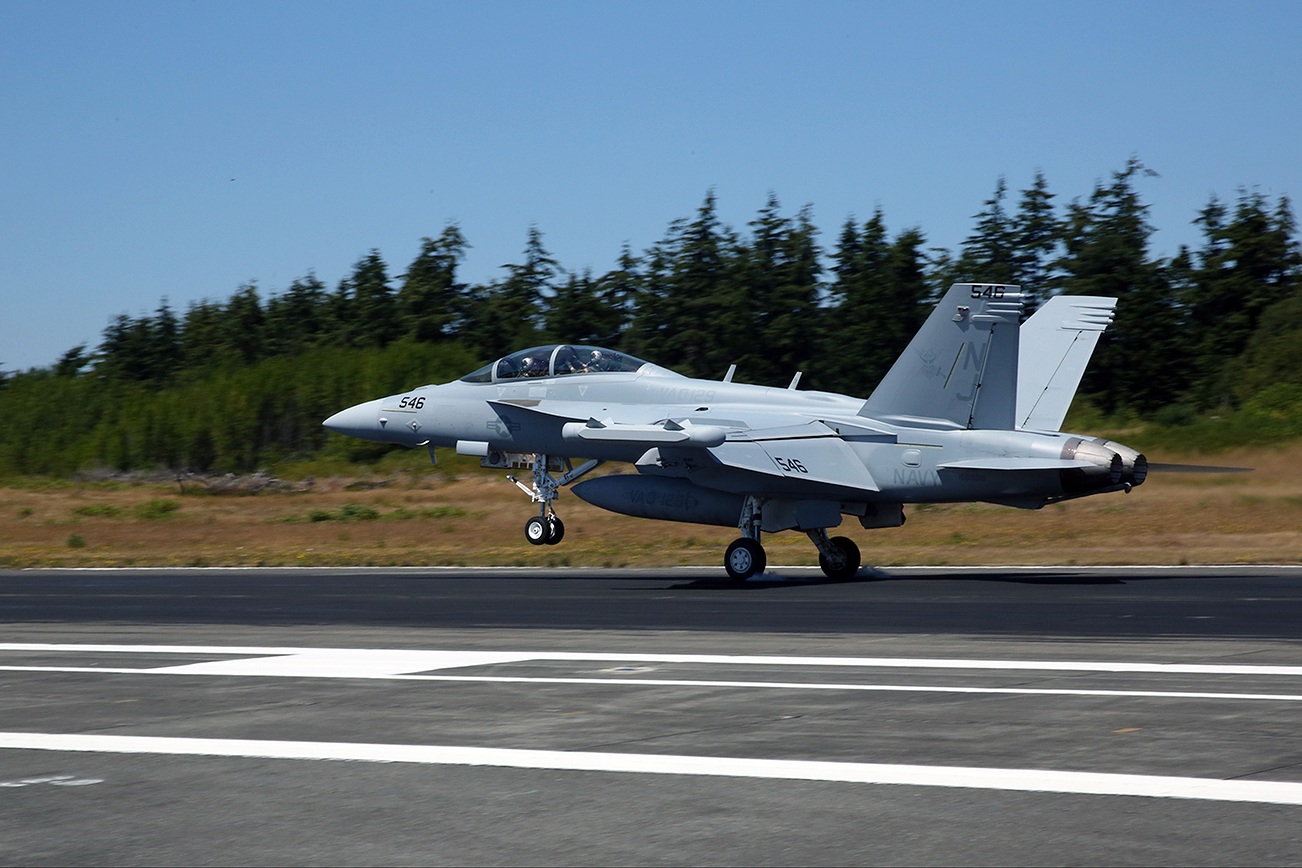Submitted by NAS Whidbey Island
A U. S. Navy E/A-18G jet assigned to Electronic Attack Squadron (VAQ) 132 experienced an on-deck emergency at Naval Air Station Whidbey Island at approximately 11 a.m. on Dec. 16.
The aircraft was damaged and both of members of the aircrew sustained injuries and were transported by a NAS Whidbey Island Search and Rescue helicopter to Harborview Medical Center for evaluation. The cause of the emergency is under investigation.
Naval Air Forces temporarily suspended flight operations for all F/A-18 E/F Super Hornets and E/A-18G Growlers as a safety precaution since they share common aircraft systems, with exceptions made on a case-by-case basis dependent upon operational requirements.
Naval Air Forces directed the Growler and Super Hornet squadrons to resume normal operations on Dec. 19.
The Growler that accident resulted in injuries to the pilot and electronic warfare officer caused safety concerns that necessitated an operational pause for all Super Hornets and Growlers. After Naval Air Systems Command and Boeing engineers investigated and identified several factors that likely contributed to the mishap, Naval Air Forces directed mitigation measures be implemented across the F-18 Fleet, since there are some similarities in the component designs for the affected systems in the recent Growler mishap. Once individual squadrons have briefed and incorporated these mitigation measures, they may resume normal flight operations.
The mitigation measures include changes to aircraft water-wash procedures and updates to the Naval Air Training and Operating Procedures Standardization (NATOPS) ground emergency procedures.
The Growler mishap is under investigation.





